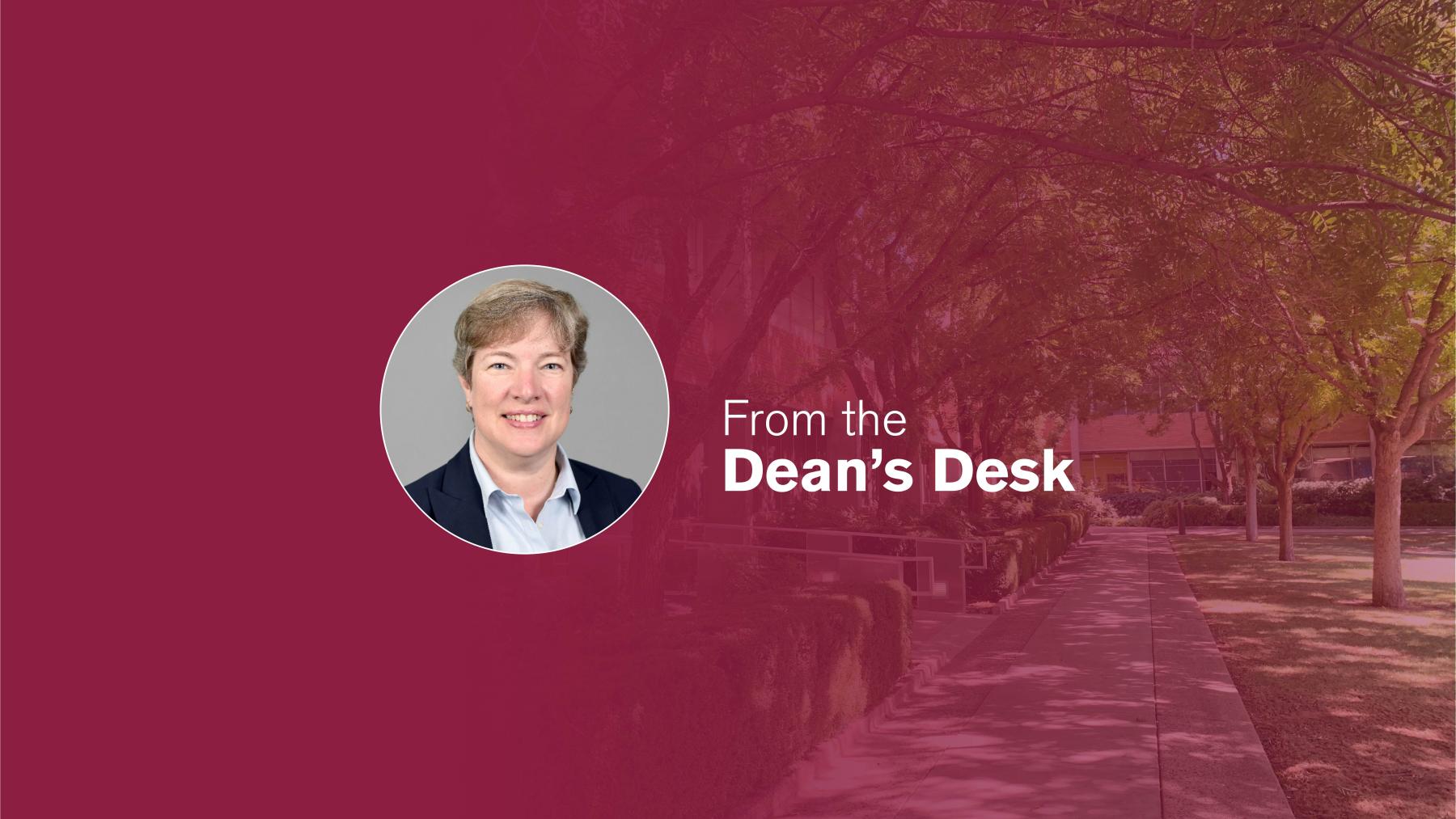
Adapting educational practices to meet students where they are
One of my graduate teaching and mentoring philosophies is to “meet students where they are.” You might be wondering what that means.
This quote by Antonia Rudenstine, Sydney Schaef and Dixie Bacallao at the Aurora Institute helps to define what I mean, “Meeting all students where they are, is a commitment that requires that we reconfigure our old systems and practices and paradigms; that we place the individual learner at the center of the learning process.”
Fundamentally, this concept means that as faculty and university leaders, we must pay attention to where students are coming from – and where they want to go. And with that in mind, we must redefine and shape the courses, mentoring styles and activities to align with each individual. These educational tools (systems, practices, paradigms) need to be structured to bring students from the beginning of their educational journey to the end, which will transition them into a meaningful career path.
While the quote above speaks to the K-12 student, I see the same need for a paradigm shift in graduate education. To accomplish that, I needed to identify the origins of students and their goals for the future. Thanks to a conversation with the Graduate and Professional Student Association’s president, I learned about where students come from by asking why students enroll in graduate programs.
Listed below are the reasons why students said they wanted to be in graduate school:
1. I need it for the job I want to have.
2. It may help me find a better paying job.
3. I don’t know what else to do.
However, recently a new reason has been added to the list. Students say they are in graduate school because they believe a graduate education will provide them with the skills and knowledge to solve the world’s most complex problems. They feel they will gain the resources to tackle issues like cancer, climate change, equity and inclusion, health care, and new technologies. I was impressed and astounded by this fresh insight.
So as the quote suggests, this fourth, crucial reason that students are in graduate school begs the question of which practices and paradigms need to change. One of the essential tools in higher education is the formation and evaluation of learning outcomes, which are statements and measures that specify what students should be learning in a course or degree program.
My observation is that many of our graduate program learning outcomes are outdated and are not meeting students where they are or taking them where they want to go. For example, many of the learning outcomes in PhD programs are to prepare students to be independent scholars. The outcomes focus on individual accomplishments such as preparing a literature review, identifying a research question or defending a dissertation. Though these are important outcomes, many scholarly careers require not just work as an independent researcher but also as a collaborative scholar.
Today’s global challenges require someone who can lead projects with large and diverse groups, work with teams within and across disciplines, participate as a key contributor and engage with communities beyond academia. These skills are also necessary for students to solve complex problems. Given the substantial need for interdisciplinary collaboration, I argue that learning outcomes for a PhD must include these skills. The bright side is that even though these new learning outcomes often get excluded, faculty are providing these opportunities so that graduate students are engaged in that sector. Collectively, learning outcomes need to be updated to reflect this shift.
What do you think?
Where are you and how well is ASU meeting your educational needs?
Share your thoughts with me on social media @ASUGradCollege
Facebook
Instagram
Twitter
LinkedIn
Elizabeth A. Wentz
Vice Provost and Dean
Graduate College
More stories from the Graduate Insider

Graduate education is an adventure
About eighteen months ago, I set out on a journey walking the islands of the Dodecanese during a sailing trip in Türkiye and Greece with several friends. Along the way, I found winding paths, timeless villages and breathtaking views of sea and sky. That experience got me thinking about how adventure shows up in other parts of life, especially in learning.

Finding your flow: Managing the graduate writing process
Graduate writing can feel like a marathon—long, demanding, and full of unexpected detours. But as Tristan Rebe, Program Manager for the Graduate Writing Center, reminded students in the Grad15: Managing the Writing Process webinar, writing is not about perfection—it’s about progress. “The best dissertation is a done dissertation,” Rebe said, quoting Robert Frost: the best way out is through.
